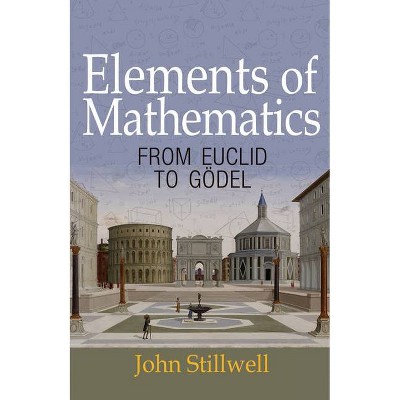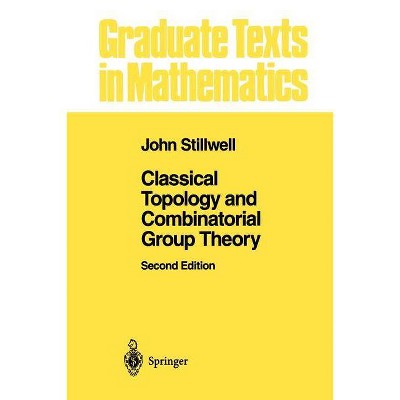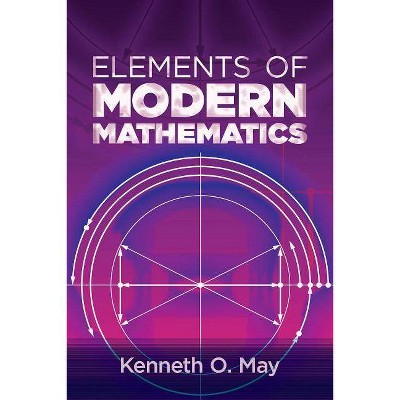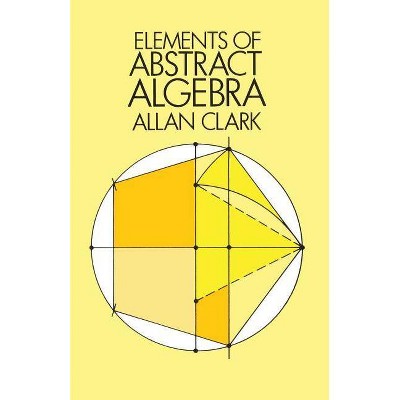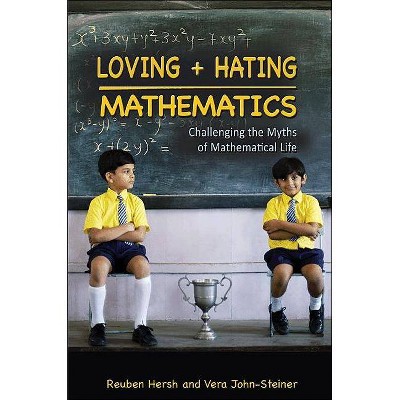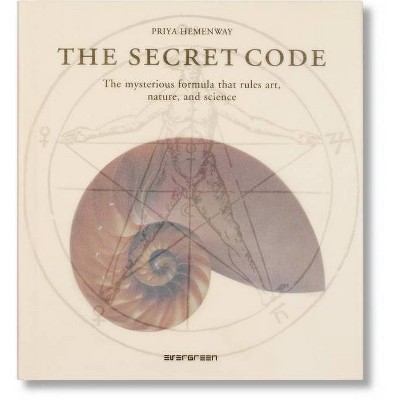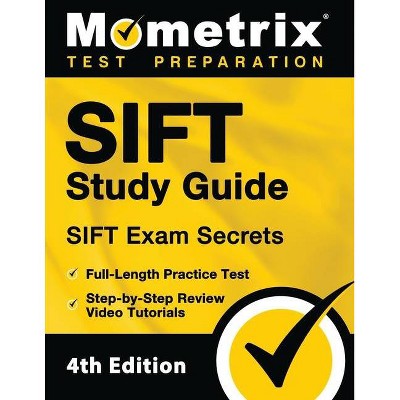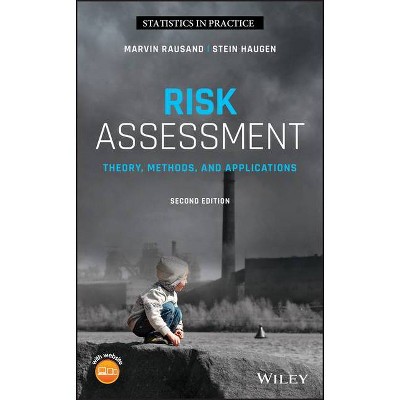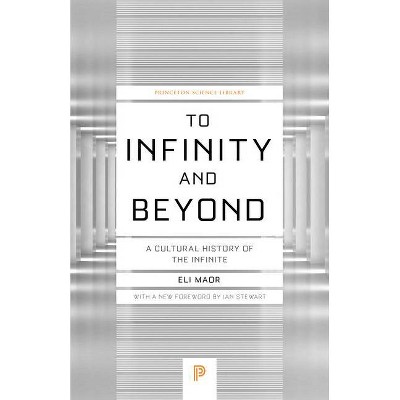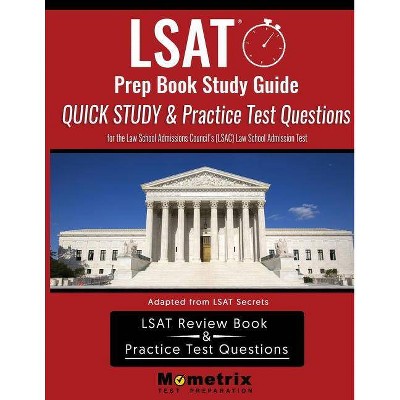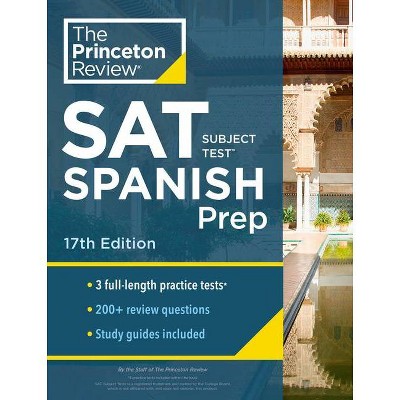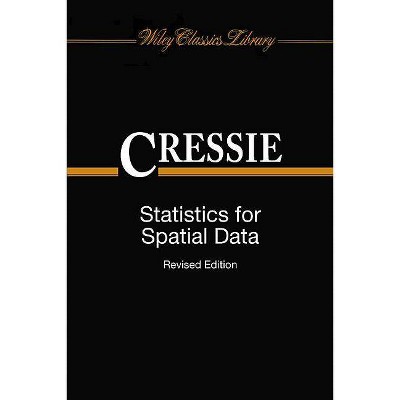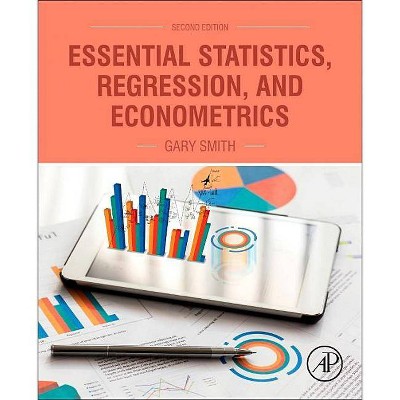Elements of Mathematics - by John Stillwell (Hardcover)
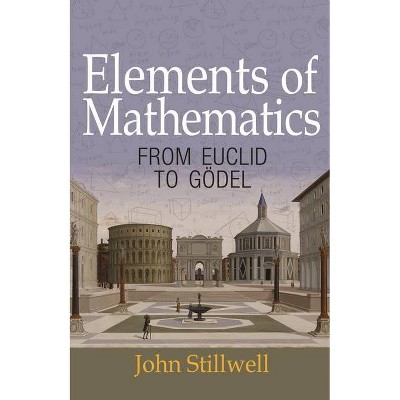
Similar Products
Products of same category from the store
AllProduct info
<p/><br></br><p><b> Book Synopsis </b></p></br></br><p><b>An exciting look at the world of elementary mathematics</b> <p/><i>Elements of Mathematics</i> takes readers on a fascinating tour that begins in elementary mathematics--but, as John Stillwell shows, this subject is not as elementary or straightforward as one might think. Not all topics that are part of today's elementary mathematics were always considered as such, and great mathematical advances and discoveries had to occur in order for certain subjects to become elementary. Stillwell examines elementary mathematics from a distinctive twenty-first-century viewpoint and describes not only the beauty and scope of the discipline, but also its limits. <p/>From Gaussian integers to propositional logic, Stillwell delves into arithmetic, computation, algebra, geometry, calculus, combinatorics, probability, and logic. He discusses how each area ties into more advanced topics to build mathematics as a whole. Through a rich collection of basic principles, vivid examples, and interesting problems, Stillwell demonstrates that elementary mathematics becomes advanced with the intervention of infinity. Infinity has been observed throughout mathematical history, but the recent development of reverse mathematics confirms that infinity is essential for proving well-known theorems, and helps to determine the nature, contours, and borders of elementary mathematics. <p/><i>Elements of Mathematics</i> gives readers, from high school students to professional mathematicians, the highlights of elementary mathematics and glimpses of the parts of math beyond its boundaries.</p><p/><br></br><p><b> From the Back Cover </b></p></br></br><p>"The coherence of mathematics is on display in this masterful, beautifully written synthesis. With probing questions, lucid explanations, and fascinating examples and stories, John Stillwell reveals where the seemingly separate branches of math came from, how they intertwine, and why the hidden unifier is the deepest idea of all: infinity."<b>--Steven Strogatz, Cornell University and author of <i>The Joy of x</i></b></p><p>"This is a beautifully written overview and excursion through elementary mathematics, written to appeal to nonspecialists. The book is distinguished by its breadth of scope and precise details. It will be a classic in the field."<b>--David Bressoud, Macalester College</b></p><p>"[A] sophisticated treatment of topics usually described as elementary."<b>--John Allen Paulos</b></p><p/><br></br><p><b> Review Quotes </b></p></br></br><br>[<i>Elements of Mathematics</i>] is a book that everybody should read. You will be the better for it.<b>---Reuben Hersh, <i>American Mathematical Monthly</i></b><br><br>[A] wonderful book . . . I think that [<i>Elements of Mathematics</i>] will itself become a modern classic and a reference work for anyone trying to learn basic topics in any of the major fields of mathematics.<b>---Victor Katz, <i>Bulletin of the American Mathematical Society</i></b><br><br>A great exploration of elementary mathematics, its limitations, how infinity complicates things, and how various branches of mathematics fit together.<b>---Antonio Cangiano, <i>Math-Blog</i></b><br><br>One of Forbes.com's 10 Best Astronomy, Physics and Mathematics Books of 2017, chosen by GrrlScientist<br><br>Readers familiar with Stillwell's previous books . . . Will not be surprised that this beautifully produced book features crystal-clear prose which is mathematically accurate, historically aware, philosophically sensitive and rich with novel twists and refreshing insights. . . . I thoroughly enjoyed this thought-provoking and very readable book. It is notably strong (and notably clear) on foundational issues and the manner in which these now permeate the whole of mathematics and, by the end, I really warmed to the idea of trying sensitively to locate the boundary between elementary and advanced mathematics.<b>---Nick Lord, <i>Mathematical Gazette</i></b><br><br>This excellent book is definitely for mathematicians and fellow travelers. It filled several gaps in areas of my own purported expertise, and opened vistas in others.<b>---George Hacken, <i>Computing Reviews</i></b><br><br>This fascinating book by John Stillwell, an Australian mathematician who won the prestigious Chauvenet Prize, is a carefully structured and clearly written overview of a variety of 'elementary' mathematical topics, from number theory, computability, algebra, geometry, calculus, combinatorics, probability, and logic. . . . Specialists will enjoy it, whilst the rest of us will learn a lot.<b>---Forbes.com, <i></i></b><br><br><i>Elements of Mathematics</i>is a fine . . . overview of the field of mathematics. . . . The writing is clear, succinct, organized, and the diagrams [and] illustrations excellent. . . . While some of the discussion is introductory or elementary, it always leads to deeper, more challenging ideas. . . . [T]his will make a fine basic addition to most mathematicians' bookshelves.-- "Math Tango"<br><br>[<i>Elements of Mathematics</i>] is quite a tour de force, organized by areas of mathematics--arithmetic, computation, algebra, geometry, calculus, and so on--and in each area Stillwell manages to distill down the big ideas and the connections with other areas. He is a master expositor, and the text manages to be engaging and accessible without watering down the mathematics. I definitely learned new things from the book!<b>---Brent Yorgey, <i>Math Less Traveled</i></b><br><br>[A] wonderful book. . . . I think that [<i>Elements of Mathematics</i>] will itself become a modern classic and a reference work for anyone trying to learn basic topics in any of the major fields of mathematics.<b>---Victor Katz, <i>Bulletin of the American Mathematical Society</i></b><br><br>An accessible read. . . . Stillwell breaks down the basics, providing both historical and practical perspectives from arithmetic to infinity.<b>---Gemma Tarlach, <i>Discover</i></b><br><br>From a lifetime of teaching, Stillwell has distilled some nice examples from the entire gamut of elementary mathematics.-- "Mathematical Reviews Clippings"<br><br>Stillwell is . . . One of the better current mathematical authors: he writes clearly and engagingly, and makes more of an effort than most to provide historical detail and a sense of how various mathematical ideas tie in with one another. . . . The features we have learned to expect from Stillwell (including, but not limited to, excellent writing) are present in [<i>Elements of Mathematics</i>] as well.-- "MAA Reviews"<br><br>Stillwell uses his broad and impressive command of mathematics to transport a reader through each topic and to a higher level of understanding and questioning.-- "Convergence"<br><p/><br></br><p><b> About the Author </b></p></br></br><b>John Stillwell</b> is professor of mathematics at the University of San Francisco. He is the author of <i>Reverse Mathematics: Proofs from the Inside Out</i> (Princeton).
Price History
Price Archive shows prices from various stores, lets you see history and find the cheapest. There is no actual sale on the website. For all support, inquiry and suggestion messages communication@pricearchive.us
